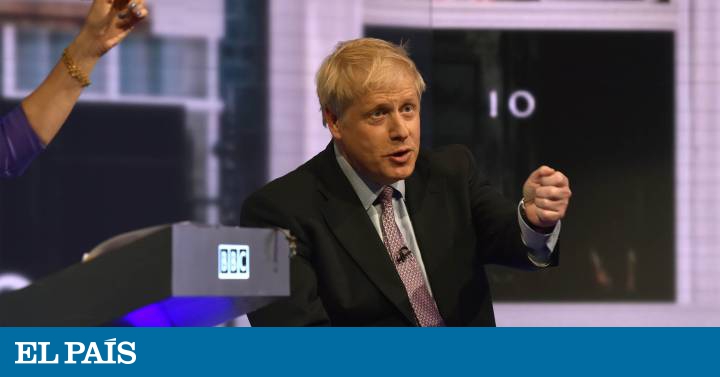On the wall of the iconic BBC building in London, the Broadcasting House, you can read a quote from George Orwell: "If freedom has any meaning, it is the right to tell people what they don't want to hear." As much of the work of the British writer and journalist, the phrase has the virtue of comforting opposing positions. The journalists of the public network have freely expressed during the last three years the contradictions and errors of the Eurosceptics in their defense of Brexit. In return, the hard wing of conservatives has questioned the anachronism, according to their point of view, of an institution that imposes its costs on taxpayers while still losing weight and relevance in a world controlled by large digital platforms for subscription content: Netflix, Disney or Amazon.
MORE INFORMATION
The BBC director throws in the towel before the new Boris Johnson Government
The BBC, convicted of paying a journalist less for being a woman
The BBC will celebrate its centenary in two years, and future celebrations have been overshadowed by an unprecedented attack on its foundations, its funding and its editorial line by the new Boris Johnson Government. The Minister of Culture, Nicky Morgan, contributed to the current state of nerves of the corporation's staff with her speech at the beginning of the month, in which she used the comparison of Blockbuster (the VHS and DVD movie rental chain that succumbed to the era of streaming ) to express your doubts about the future of public television. "Simply, the world in which the BBC emerged - and its financing through the individual payment of a license - has changed to the point that we no longer recognize it. We must think carefully what we want it to be in the coming years," he anticipated. .
At the moment, Downing Street has begun to consider the possibility of eliminating the penal sanction that comes with non-payment of the license. Any resident in the United Kingdom who enjoys BBC programming, either through a traditional television receiver or through his computer or mobile phone, must pay an annual fee of about 185 euros. There is effective control of each home, with on-site inspections , to check the use of its services. And a threat of a fine of up to 1,200 euros for offenders. The enemies of the BBC defend the need to "decriminalize" default. As in every cultural war, words are weapons. Morgan herself suggested in her speech the unlikely consequence of ending up in prison for watching the contents of the BBC without paying.
To imagine a United Kingdom without the BBC would be almost as complicated as dispensing with the Windsor or Big Ben house. It concentrates in its history so many features and virtues, and at the same time so many contradictions and defects, that no argument in the debate about its existence can be definitive. Its defenders are unable to find the economic viability of a monster that devours 5,870 million euros per year (according to 2019 figures), of which 4,400 million come from the individual rate paid by citizens. And that still had a deficit of 62 million euros last year. The most watched series in the United Kingdom in 2018 was Bodyguard . The BBC would have needed more than 30 equally successful series to maintain the audience level of the previous year. That is the rate of descent. Detractors try to reconcile in each attack the obvious economic problem with the need to preserve an institution that has globalized the essence of British culture like no other.
"The most relevant legal privilege [of the BBC] is its ability to have a source of funding that is not based on the public's decision to use their service or not, but on the simple fact of having a receiver at home. This is something that distorts competition with any alternative content provider, "economist Philip Booth wrote in his New Vision report. It is a proposal commissioned by the Conservative Thought Center Institute of Economic Affairs to convert the BBC into a platform that is funded through user subscriptions. That would mean, say critics, a notable reduction in content production. "The criticism of those who argue that the BBC should reduce its size is intended to suggest that public television is dedicated to flooding the market with contents and reducing the possibilities of commercial productions. If they stop doing so, they think, the latter will proliferate. I don't believe it. Rather, what they would achieve is the collapse of British productions, "argued Patrick Barwise, a marketing expert at the London School of Economics and one of the most prominent advocates of the future of the public corporation.
The BBC has its secured future until 2027, thanks to the Royal Chart that the corporation negotiated with the conservative government of David Cameron. Time is running, and Johnson's team (headed by his advisor Dominic Cummings, the genius behind Brexit's success and the corporation's raging enemy) begins to design his revenge towards an institution he considers plagued by leftists of proven bias. BBC President Tony Hall resigned earlier this year. There is a clear strategy in his resignation. The board of the corporation may appoint a substitute to face the coming years without the Government being able to say anything about it. And he must lean, experts say, towards a person more focused on the challenges of the new digital environment than on the news that the news should open at six in the afternoon.

